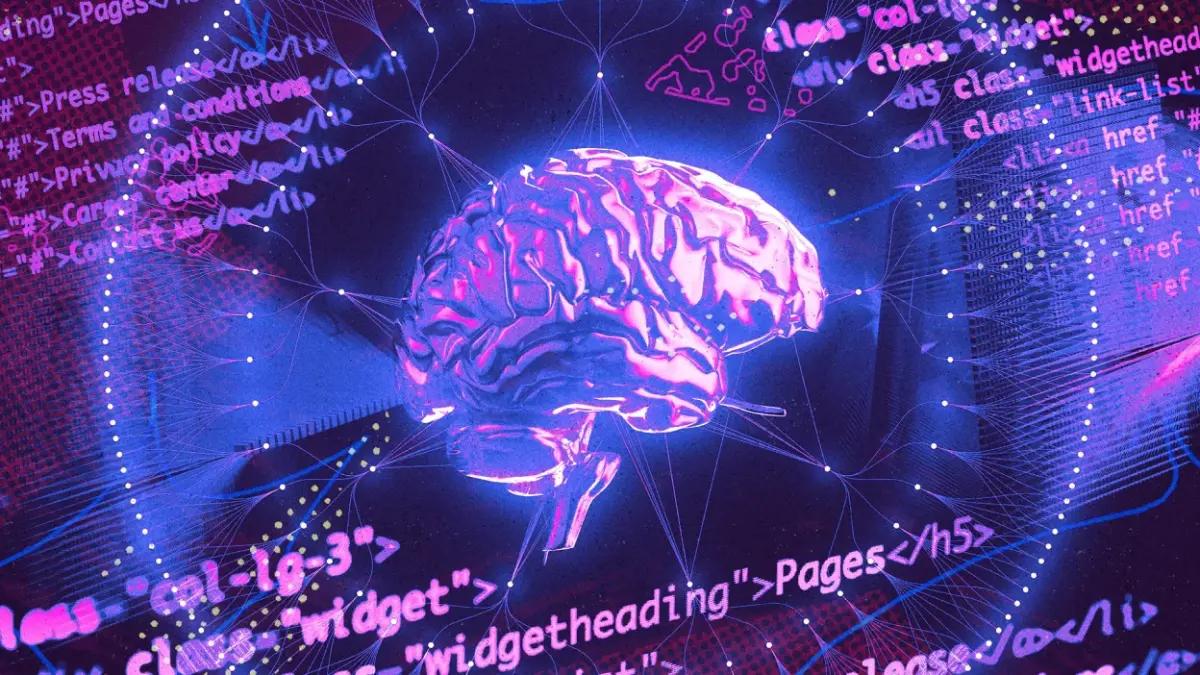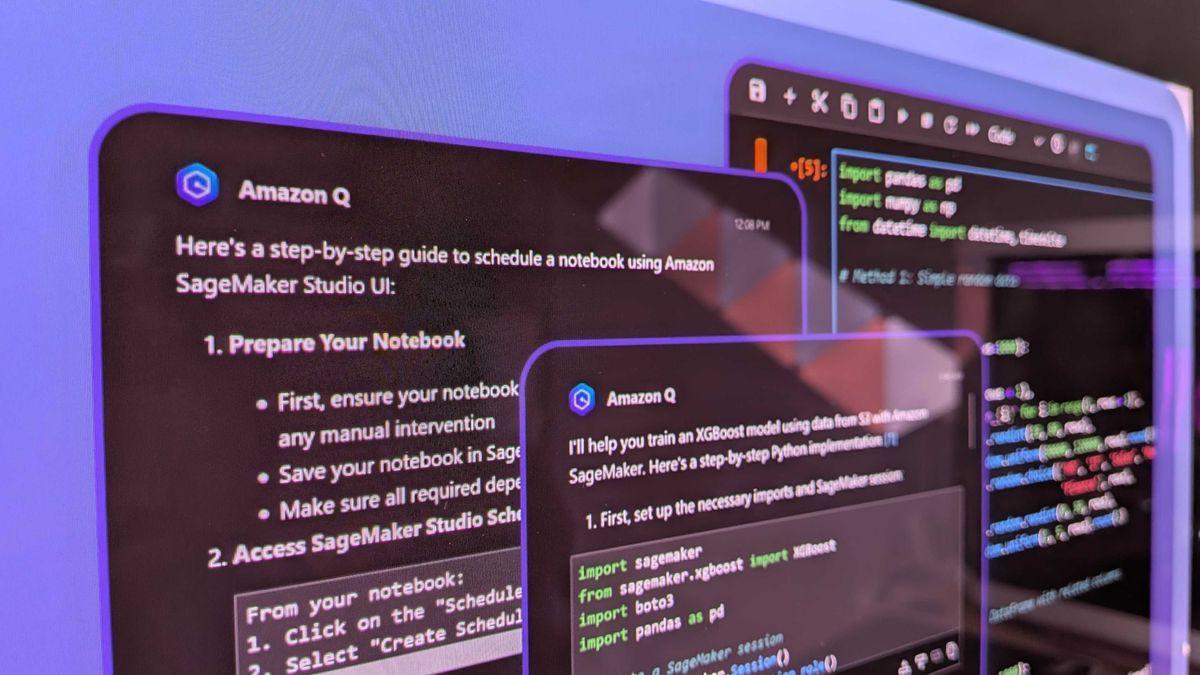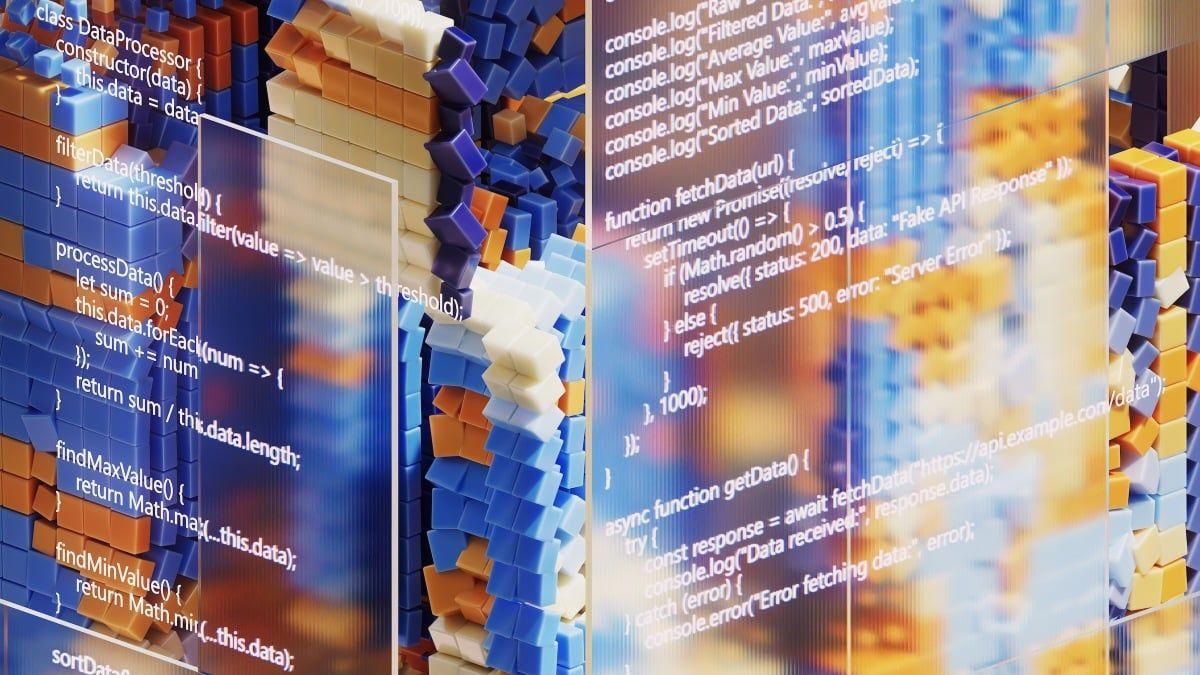Collins Dictionary Names 'Vibe Coding' Word of the Year 2025, Sparking Developer Debate
6 Sources
6 Sources
[1]
Vibe coding named Word of the Year. Developers faceplant
Vibe coding has broken free of tech circles to claim Collins Dictionary's Word of the Year 2025 -- a choice that may prompt developers to ask: what could possibly go wrong? Technically two words -- yes we know -- it's the compound verb Collins says describes as the "use of artificial intelligence prompted by natural language to assist with the writing of computer code". "Tired of wrestling with syntax? Just go with the vibes. That's the essence of vibe coding," Collins writes in a blog post published today. We at Vulture Central do not stand reassured. Collins attributes the moniker to Andrej Karpathy, a director of AI at Tesla and former OpenAI researcher. He said vibe coding is "fully giv[ing] in to the vibes, embrac[ing] exponentials, and forget[ting] that the code even exists." That might be ok for someone who knows how to code, but is, perhaps, a little risky for the enthusiastic amateur. "While tech experts debate whether it's revolutionary or reckless, the term has resonated far beyond Silicon Valley, speaking to a broader cultural shift towards AI-assisted everything in everyday life," Collins adds. Although vibe coding might sound appealing and lower barriers to an erstwhile exclusive domain, it has frightening implications for the rest of tech. Vibe coders might describe an app they want to build, oblivious that it requires database infrastructure they've never heard of -- creating demand for new types of automation to fill the gaps. The Reg has seen vibe coding platforms pop up everywhere. Some among them promise that "anyone can go from idea to deployed app with UI, content, backend and logic included." JetBrains and AWS have now launched vibe coding tools. Application vendors are getting in on the act too: Salesforce recently launched Agentforce Vibes, a new AI-assisted IDE for building apps on its platform. But it is early days. After getting hands-on with some vibe coding tools, The Reg suggests caution: over-promising appears to be the norm. With some heralding the arrival of a new era in tech, we might want to have a word. ®
[2]
'Vibe coding' named word of the year by Collins Dictionary
If you've ever wanted to create your own computer program but never learnt how to code, you might try "vibe coding". Collins Dictionary's word of the year - which is confusingly made up of two words - is the art of making an app or website by describing it to artificial intelligence (AI) rather than by writing programming code manually. The term was coined in February by OpenAI co-founder Andrej Karpathy, who came up with the name to represent how AI can let some programmers "forget that the code even exists" and "give in to the vibes" while making a computer program. It was one of 10 words on a shortlist to reflect the mood, language and preoccupations of 2025.
[3]
'Vibe coding' is Collins Dictionary's word of 2025
Credit: Ian Moore / Mashable Composite; Klaus Vedfelt / DigitalVision / Getty It's been one of the biggest internet terms of the year, and now it's official: "vibe coding" is Collins Dictionary's word of 2025. Beating runners up including clanker, aura farming, broligarchy, glazing, biohacking, and more, the term was coined in Feb. 2025 by former OpenAI co-founder Andrej Karpathy, who posted on X of a coding and software development mode that leans heavily on artificial intelligence, "where you fully give in to the vibes, embrace exponentials, and forget that the code even exists." This Tweet is currently unavailable. It might be loading or has been removed. Essentially, vibe coders don't actually code, instead they can describe what they're wanting to create and hand the reins to AI - and OpenAI's GPT-5, Claude 4.1 Opus, and Grok 4 (Expert), all function with differing efficacy when it comes to vibe coding. Writing for Mashable, Christian de Looper described the term like this: "Vibe coding is certainly the buzzword du jour. It's a type of software development that doesn't require any traditional coding skills. Rather, you simply describe the type of software, app, or tool you want to create and let AI do the rest."' In a blog post, Collins Dictionary described the term as one "that captures something fundamental about our evolving relationship with technology...Basically, telling a machine what you want rather than painstakingly coding it yourself. It's programming by vibes, not variables. While tech experts debate whether it's revolutionary or reckless, the term has resonated far beyond Silicon Valley, speaking to a broader cultural shift towards AI-assisted everything in everyday life."
[4]
If you think 2025 couldn't get worse, Collins Dictionary awards 'vibe coding' the word of the year
If you've never heard of vibe coding, it's the act of using generative AI and neutral language to code without actually writing a single line of code yourself. That's just the kind of world we live in now. As an acknowledgement of this change, Collins Dictionary has awarded the term Word of the Year, despite, well, being two words. This week, Collins Dictionary posted a blog celebrating and explaining its choice for the Word of the Year (via The Register). Vibe coding is relatively contentious in itself. Generative AI has been widely criticised for flagrantly ignoring copyright and for its adoption by investors declaring it's the next big thing in games, movies, or whatever art form you hold dear. And that's because there are productivity gains to be made in skipping through all the manual work of creative labour. Of course, that comes with its own set of problems. An overreliance on the black box that is generative AI can make coders less able to actually fix their own problems when they inevitably pop up. As well as this, we've seen stories of AI coding tools 'panicking' and destroying entire databases, and coding assistants being vulnerable to targeted attacks. That is to say, vibe coding is pretty contentious. The blog post from Collins Dictionary explains, "While tech experts debate whether it's revolutionary or reckless, the term has resonated far beyond Silicon Valley, speaking to a broader cultural shift towards AI-assisted everything in everyday life." If you think vibe coding winning Word of the Year is bad, just wait until you see some of the runners-up. These include 'aura farming' (where one attempts to look cool through deliberate charismatic actions), 'taskmasking' (to fake being ultra productive), or 'glaze' (to praise someone, often with the connotation that you're being disingenuous). But, of course, like Time's person of the year, Collins Dictionary's Word of the Year is not necessarily intended to be an endorsement of the word: just a reflection of the culture (look up who Time awarded man of the year in 1938 for arguably the biggest demonstration of this 'importance does not equate to good' principle). Vibe coding winning Word of the Year is a demonstration of divide, of the changes that generative AI has wrought. Collins Dictionary says that words like vibe coding represent a pro-AI approach, where taskmasking and clanker (a joke slur for robots) represent an anti-AI sentiment. The blog argues words like glazing call out fakeness, while aura farming encourages it. "In 2025, it's more apparent than ever that people contain multitudes, and this year's Word of the Year list encapsulates what it means to be human in the age of AI," the blog post concludes. If you've gotta give a rational for using the word 'vibe coding', that's a pretty good one.
[5]
Collins Dictionary names "vibe coding" the 2025 word of the year
Coined by OpenAI cofounder Andrej Karpathy, "vibe coding" describes software built by "forgetting that the code even exists." Collins dictionary has named "vibe coding," an AI-inspired term for turning natural language into computer code, as its 2025 word of the year. Lexicographers at Collins, who monitor a 24-billion-word corpus of media and social media sources, chose the term after noting a significant increase in its usage since its first appearance in February. "Vibe coding" describes a method of software development where a person can create an application using AI without needing to understand the underlying code. The term was coined by Andrej Karpathy, a founding engineer at OpenAI and former AI director at Tesla, to describe a process where a developer could "forget that the code even exists." The 2025 list was heavily influenced by technology and AI. Other words on the list include "clanker," a derogatory term for AI, computers, or robots popularized by Star Wars: The Clone Wars and used to express frustration with AI chatbots. Also included are "biohacking," the activity of altering your body's natural processes for health; "glaze," meaning to flatter someone excessively; and "aura farming," the act of cultivating a distinctive and charismatic persona, which gained traction from the "boat kid" video. Other new additions to the list are: Alex Beecroft, the managing director of Collins, stated that "vibe coding" was selected because it "perfectly captures how language is evolving alongside technology" and "signals a major shift in software development, where AI is making coding more accessible."
[6]
'Vibe Coding' is Collins Dictionary's Word of the Year 2025: Know what it means
Collins Dictionary has named "vibe coding" its Word of the Year 2025, reflecting AI's growing influence on software development. This new programming method allows users to create applications by describing them to an AI chatbot, making coding more accessible to those without prior experience. The term highlights the evolving interaction between language and technology in creating software. Collins Dictionary has chosen "vibe coding" as its Word of the Year 2025, underscoring the growing impact of artificial intelligence (AI) on software development and creativity. The term, popularised by OpenAI co-founder and former Tesla AI director Andrej Karpathy, describes a new way of programming -- one where developers create computer programs by simply describing them to an AI chatbot instead of writing code manually. Karpathy introduced the concept to explain how AI tools can enhance creativity to the extent that he could "forget that the code even exists." In essence, "vibe coding" allows people with little or no programming experience to build basic apps and websites through natural language prompts, making coding more accessible than ever. Collins' Take on the Word Alex Beecroft, Managing Director of Collins, said that "vibe coding" captures the evolving relationship between language and technology. The term highlights how conversational AI is reshaping the way humans interact with machines and create software. In addition to "vibe coding," other notable entries on Collins' Word of the Year 2025 shortlist include: "Biohacking" "Clanker" "Aura Farming" These emerging terms reflect the intersection of technology, wellness, and digital culture that continues to shape modern vocabulary. (You can now subscribe to our Economic Times WhatsApp channel)
Share
Share
Copy Link
Collins Dictionary has selected 'vibe coding' - the practice of using AI to write code through natural language descriptions rather than manual programming - as its 2025 Word of the Year. The term, coined by OpenAI co-founder Andrej Karpathy, reflects the growing cultural shift toward AI-assisted development but raises concerns among tech experts about coding competency and reliability.
Collins Dictionary Crowns 'Vibe Coding' as 2025 Word of the Year
Collins Dictionary has officially named "vibe coding" as its 2025 Word of the Year, marking a significant cultural milestone for artificial intelligence's impact on software development
1
2
. The compound term, which technically consists of two words, describes "the use of artificial intelligence prompted by natural language to assist with the writing of computer code"1
.
Source: ET
Lexicographers at Collins monitored a 24-billion-word corpus of media and social media sources, noting a significant increase in the term's usage since its first appearance in February
5
. The selection reflects what Collins describes as "a broader cultural shift towards AI-assisted everything in everyday life"1
.Origins and Definition by AI Pioneer
The term was coined by Andrej Karpathy, a founding engineer at OpenAI and former AI director at Tesla, who introduced the concept in February through a social media post
2
. Karpathy described vibe coding as a development approach where programmers "fully give in to the vibes, embrace exponentials, and forget that the code even exists"1
.Essentially, vibe coding allows individuals to create applications and websites by describing their desired functionality to AI systems rather than writing traditional programming code manually
2
. As one analysis explained, "you simply describe the type of software, app, or tool you want to create and let AI do the rest"3
.
Source: Mashable
Industry Adoption and Platform Proliferation
The concept has rapidly gained traction across the technology industry, with major companies launching dedicated vibe coding platforms and tools. JetBrains and AWS have introduced vibe coding solutions, while Salesforce recently launched Agentforce Vibes, an AI-assisted integrated development environment for building applications on its platform
1
.Numerous platforms now promise that "anyone can go from idea to deployed app with UI, content, backend and logic included," targeting users without traditional programming backgrounds
1
. Current AI models including OpenAI's GPT-5, Claude 4.1 Opus, and Grok 4 Expert all function with varying degrees of effectiveness for vibe coding applications3
.
Source: PC Gamer
Related Stories
Developer Community Divided on Revolutionary vs. Reckless
The recognition has sparked intense debate within the technology community about whether vibe coding represents progress or poses significant risks. While the approach promises to democratize software development by lowering barriers to entry, experienced developers express concerns about its implications
1
.Critics worry that vibe coders might attempt to build complex applications without understanding underlying requirements, such as database infrastructure, creating demand for new types of automation to fill knowledge gaps
1
. Additional concerns include over-reliance on AI systems that function as "black boxes," potentially leaving developers unable to troubleshoot problems when they arise .Reports have emerged of AI coding tools experiencing critical failures, including instances of systems "panicking" and destroying entire databases, along with vulnerabilities to targeted attacks . Early assessments suggest that over-promising appears to be common among current vibe coding platforms
1
.References
Summarized by
Navi
[1]
[4]
Related Stories
Recent Highlights
1
Google Gemini 3.1 Pro doubles reasoning score, beats rivals in key AI benchmarks
Technology

2
Meta strikes up to $100 billion AI chips deal with AMD, could acquire 10% stake in chipmaker
Technology

3
Pentagon threatens Anthropic with supply chain risk label over AI safeguards for military use
Policy and Regulation








